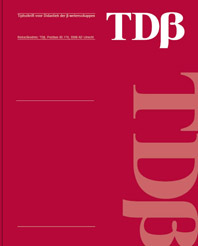Begrips- en redeneerproblemen in beginnend elektriciteitsonderwijs

Tijdschrift voor Didactiek van de Beta-wetenschappen, uitgegeven door het Freudenthal Instituut, Universiteit Utrecht in de periode 1983-2014 |
Licht, P.
Tijdschrift voor Didactiek van de Beta-wetenschappen |
In recent years many results have been published on studies of students understanding and concepts of basic electricity, especially simple DC-circuits. On the basic of this research a test has been constructed to investigate conceptual problems experienced by students of different ability in the third form of Dutch secondary education (grade 9). In addition to their multiple-choice answers, students were also asked to give reasons for the answers chosen. These reasons have been categorized as far as possible. The overall results are quite the same as in other western countries: current is the primary concept, whereas potential difference is regarded as a consequence of electric current; a battery is a source of constant current; students have difficulties in analyzing the effect a change in one component has on the rest of the circuit; they use a constant-current or a sequential model to predict for instance the brightness of bulbs in circuits with a battery, bulbs and resistors. But more important than identifying these models is the fact that students use these ways of reasoning rather consequently. There is hardly any (statistically significant) difference between the results of the different ability groups. The overall results of the students are not very encouraging and should have consequences for the way of teaching electricity. In following articles we will deal with these consequences.
U moet ingelogd zijn om een reactie te kunnen plaatsen.


